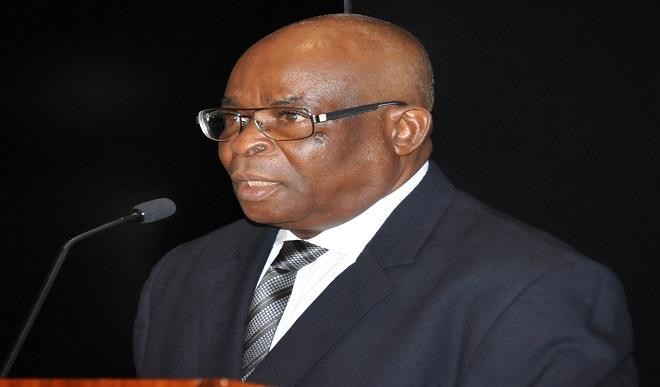How new nat’l policy will change justice sector
Stakeholders in the Nigerian justice sector have agreed that implementing specific institutional reforms in their various departments is the way forward for the institutionalization of the new national policy on justice. To do this, each participant agreed to submit a measurable Action Plan for their organisation’s area of responsibility, which will be evaluated annually. This […]


Stakeholders in the Nigerian justice sector have agreed that implementing specific institutional reforms in their various departments is the way forward for the institutionalization of the new national policy on justice. To do this, each participant agreed to submit a measurable Action Plan for their organisation’s area of responsibility, which will be evaluated annually.
This was the agreement at the North Central Zonal Sensitization Workshop on the National Policy on Justice in Ilorin, Kwara State between November 27 and 28, 2017. Justice sector institutions from the six states and the FCT represented at the forum include: the Nigerian Police, the Nigerian Prisons Service, the judiciary, the Nigerian Bar Association (NBA), the Federal and states Ministries of Justice, the civil society, while the Department of State Services (DSS) and the Economic and Financial Crimes Commission (EFCC) among others are expected to be briefed.
The National Police on Justice is a multi-stakeholder approach to addressing the basic problems of the system such as undue delays, inefficiencies, excessive costs, and in many instances denial of justice.
The policy became necessary, according to the Attorney General of the Federation (AGF) and Minister for Justice, Abubakar Malami (SAN) address the isolation and conflicting operations of justice administration institutions in the country and entrench coordination in their activities, adding that the policy marked a paradigm shift in the justice sector.
The AGF, who was represented at the event by a director in the Federal Ministry of Justice, Ifunanya Nwajagu, noted that while other sectors such as education, health, and agriculture have put in place national policies and structures to provide a wide legal framework for their operations, there was no such policy to “facilitate collaboration and coordination for all justice sector institutions.”
“The policy sets out ideal principles and guidelines for effective and efficient service delivery. The policy provides the framework for resolving cross-institutional problems, developing and managing all-inclusive reforms as well as coordinate the implementation of the reforms,” he said.
The document identified 17 major problem areas of the justice sector and proffered strategic intervention in line with international best practices. Some of these areas include: speedy dispensation of justice, promotion of human rights, access to justice, restorative justice, ADR, traditional justice system, legal pluralism, independence of the judiciary, and cooperation across the justice sector.
Other areas are: openness, capacity and infrastructure, legal and professional education, ICT, national security, regulatory framework on commercial and economic activities, fair, credible and violence-free electoral process, and compliance with treaty obligations.
Introducing the policy, a member of the committee on National Policy on Justice, Prof Tawfiq Ladan called on Nigerians to own the policy because it sets out to address the failures and inadequacies of the justice system to make it efficient, timely, accessible, affordable, non-discriminatory and qualitative.
“The policy provides for a bold initiative that aims to achieve the necessary unity of purpose among the largely autonomous stakeholders in the justice sector, judicial bodies, the justice sector ranging from adjudicatory bodies, justice sector policy institutions, law enforcement agencies and allied institutions as well as justice sector focused civil society organisations including the Nigerian Bar Association these are the justice sector stakeholders that the policy seeks to address,” he said.
“The policy acknowledges very clearly the fact that Nigeria operates constitutional federalism and therefore it identifies eight fundamental root causes of the failures and inadequacies of the justice sector in Nigeria,” he added.
In his address, the Attorney General of the state and Commissioner for Justice, Kamaldeen Ajibade (SAN) announced that the state government has elongated the service of magistrates and state counsel to 65 years as against the initial 35 years to address loss of experience for officials who grew through the system as part of reforms in the justice sector.
He also said that though the speaker of the state assembly, Ali Ahmad played a major role in the passage of the Administration of Criminal Justice Act (ACJA, 2015), a committee is currently reviewing the bill for the enactment of the state’s version of the law.
